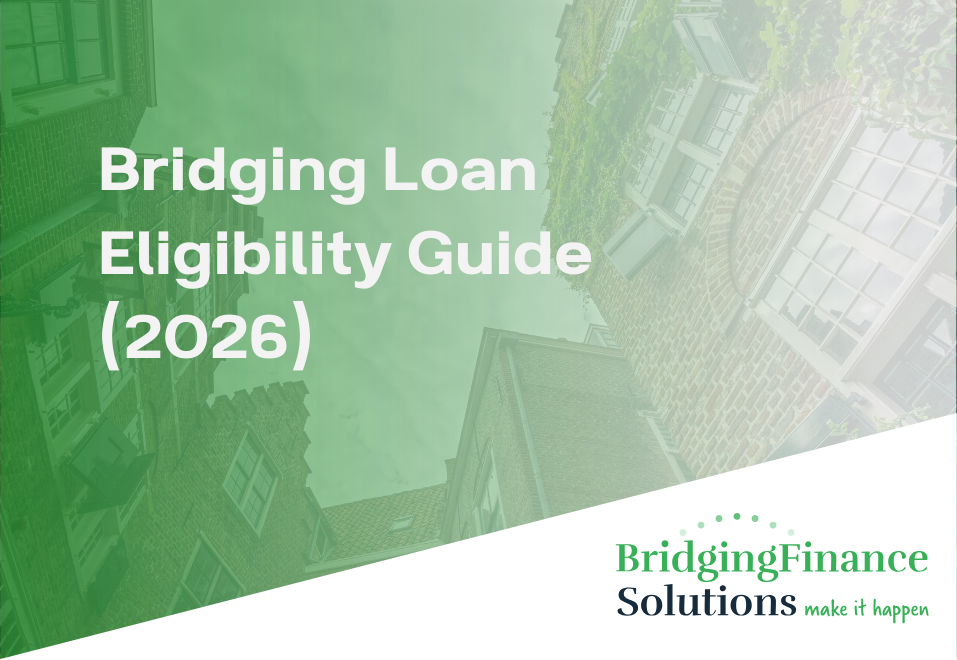Losing a loved one is never easy, but it becomes even more difficult when financial stress is introduced into the situation. Probate, the process of settling a deceased person’s estate, can come with a whole host of financial obligations and stresses.
With strict deadlines, the will’s executor is under immense pressure to ensure that everything is in place, which can only further the situation’s stress. With such strict deadlines, it is common for executors to turn to financial support to avoid penalties.
At Bridging Finance Solutions, we have helped many clients access funds tied up in probate and provided bridging loans to support a range of circumstances.
Read on to find out more about probate finance.
Understanding the Probate Timeline

In the UK, probate timelines for simple estates usually take between 6 and 12 months, with complex estates potentially taking longer.
Grant of Probate
At this point, the executor of the will applies for a Grant of Probate, which gives them the legal authority to manage the deceased’s estate. For simple cases, this can be granted within 16 weeks, but with many cases being submitted digitally, this time is reducing.
Estate Administration
After the Grant of Probate has been issued, the assets of the deceased must be collected by the executor or administrator of the will. Depending on the circumstances, this can take anywhere from 3 to 12 months. At this point, the complexity of the case is further analysed.
The executor is expected to clear any debts and decide whether or not property needs to be sold. By this point, the executor may not have the necessary funds, which is why probate finance is usually sourced at this point.
Once all liabilities are settled and the necessary taxes and additional financial obligations have been paid, the assets are transferred to the beneficiaries.
Distribution to Beneficiaries
This is the final probate step and, depending on the cooperation of the involved parties, can take 2 to 3 months to complete. If there is a dispute or further complexities, this part of the probate process may go on even longer.
Factors That May Affect Probate Periods
There are a number of factors that may extend or affect the probate timeline, these include:
Estate Size and Complexity
Estates with more significant assets may take longer.
Sale of Property
Selling property to pay taxes or debts can extend the timeline.
Disputes and Claims
Anyone who disputes or makes claims against the estate can affect the probate process.
Executor Efficiency
The effectiveness of the executor in fulfilling the demands of the will.
Delays at the Probate Registry
If there are many cases going to the probate registry, the turnaround time could be slower.
The Financial Implications of Delays
While delays may be anticipated, they carry significant consequences. These delays can result in financial repercussions, such as penalties for the late payment of Inheritance Tax.
If the probate process is delayed, additional legal fees may be incurred if legal advice and support are required, so it is essential that the necessary finances are sourced to prevent the delay of the process.
Avoiding delays usually depends on having the correct finance in place, which is why many people turn to probate finance as a solution.
Types of Probate Finance Solutions

There is a range of potential probate finance solutions to choose from, and these include:
Probate Bridging Loan
A probate bridging loan serves as a short-term financial solution to cover gaps during the probate process. It allows beneficiaries to access funds quickly, covering large costs such as inheritance tax, funeral costs, and any legal costs that may be incurred.
At Bridging Finance Solution, we recognise the impact that probate fees can have on a family. We pride ourselves on being able to provide probate bridging loans quickly, helping to relieve these financial burdens.
Inheritance Advance Loan
Advance Loans allow beneficiaries to access a portion of their inheritance before the probate process is complete. This is used to help pay off any costs that may occur at the time and is typically repaid once the beneficiary receives their inheritance and the estate is distributed.
There are no monthly repayments with this type of loan, and you are expected to pay the full amount back as soon as is possible. You may also be expected to pay interest and any associated fees on this loan. Borrowers may face a shortfall if the inheritance is not as large as initially predicted.
Executor Loans
Executor loans allow executors of a will to cover costs such as inheritance tax, property maintenance and property funds.
These loans are repaid directly from the estate.
How Probate Finance Can be Used For Inheritance Tax
The largest bill you will likely face after the loss of a loved one is the Inheritance Tax. Inheritance Tax is the tax paid on the estate of someone who has died and is often billed at 40% of the value, but it will only be charged if the estate’s value is above the current threshold of £325,000.
Probate can help pay the cost of Inheritance Tax in the following ways.
Meeting HMRC Payment Deadlines
HMRC is strict with its deadlines, and there could be financial implications if you do not produce the necessary funds in time. Probate finance enables executors of a will to secure funding promptly, ensuring that any outstanding debts can be settled in a timely manner.
This means that executors do not have to rush to source personal finances or sell assets in order to meet the deadlines and avoid penalties, providing much-needed peace of mind.
Comparing The Cost of Probate Finance With Potential Penalties
There is still much debate concerning whether probate finance is worth the potential fees and interest, with many arguing that facing penalties will work out better financially.
Though you will indeed have to pay fees when taking out any probate finance, including probate bridging loans, these fees really do not compare to the potential penalties of not paying Inheritance Tax within the correct time frame.
Inheritance tax is due 6 months after the person’s death, and you are charged a daily interest rate of 7.75% on missed payments. If you don’t repay the loan for some time, you may find that you are repaying 100% of your bill.
In contrast, the probate cost can be substantially lower and far more predictable.
The Cost of Probate Finance

If you take out probate finance to settle any debts or bills following the loss of a loved one, consider the associated costs of using a probate bridging loan.
Interest Rates
The interest rates can differ depending on the provider, but they typically range from 0.75% to 1.5% per month. Many factors may influence them, such as the loan’s risk profile.
This interest can be rolled up and paid at the end of your loan period, or it may be serviced monthly.
Arrangement Fees
Arrangement fees are a one-time charge from the lender that covers the cost of setting up the loan. This fee is usually 1 to 2% of the total loan amount and is either deducted from the loan upfront or added to the total balance.
Legal Costs
When you take out a bridging probate loan, the lender will need a solicitor to carry out legal checks, which usually include title searches and loan documentation.
A borrower is typically expected to cover their own legal fees and also the lender’s legal fees. These fees can typically range from £800 to £2,000+. Legal fees are either paid upfront or deducted from the loan.
Early Redemption Considerations
Though it may be presumed that early repayment of your loan would result in lower charges, you may, in fact, end up paying more money on your loan if you redeem your bill early.
This fee can be up to 2% of your overall loan and is designed to cover the loss of potential interest fees that the lender would have received if the loan had been paid over the previously discussed term. BFS does not charge early redemption fees. A Minimum period of one month applies.
The Probate Finance Application Process
If you have considered your options and believe that a probate bridging loan may be your best financial choice, you will need to follow the process outlined below to secure it:
Documentation
Before you are granted probate finance, you will need to provide the correct documentation to your lender, allowing them to assess the estate and decide if you are eligible for a loan.
You will likely be expected to provide the following documentation:
- ID and proof of address of the borrower.
- Death certificate of the deceased.
- Will.
- Details of the estate.
- Solicitor details.
- Any estate accounts or estimates of possible inheritance.
It is recommended that you have all of this documentation readily available to ensure that the process runs smoothly. This can help you receive the loan in a matter of days.
Grant of Probate Status
Lenders will want to know whether or not the Grant of Probate has been obtained.
Though lenders can still issue a loan before probate based on expected inheritance, it is much easier if the legal authority is confirmed and the lender knows that they will be able to get their money back.
Because the money is repaid from the estate, lenders are more inclined to provide financial support when they know less risk is involved.
Valuation of Estate Assets
The lender needs to understand the value of the estate assets to ensure that the loan they are providing is secure. This will include a formal property valuation and an assessment of other assets, such as investments. Though other assets will be considered, property is the most common collateral.
When evaluating your assets, lenders often require a loan-to-value ratio of up to 70%-75%.
Timeline Expectations
Probate bridging loans are popular because they are designed to be fast, much quicker than traditional loans. With fast bridging lenders, such as Bridging Finance Solutions, you can expect to receive your funds quickly, as long as you are working with an efficient solicitor and have your documents prepared.
The duration of your loan process is largely influenced by the evidence you can provide and your level of cooperation throughout the procedure.
Overcome Probate Stress With Bridging Finance Solutions

Through this guide, we hope to have positioned probate bridging loans as the prime financial solution for dealing with probate debt and avoiding the liquidation of personal assets to pay these debts.
At Bridging Finance Solutions, we pride ourselves on being able to deliver finance, quickly and sympathetically. With us on your side, you don’t have to worry about taking on the financial burden of probate.
Fill out our application form to see how we can help you.




